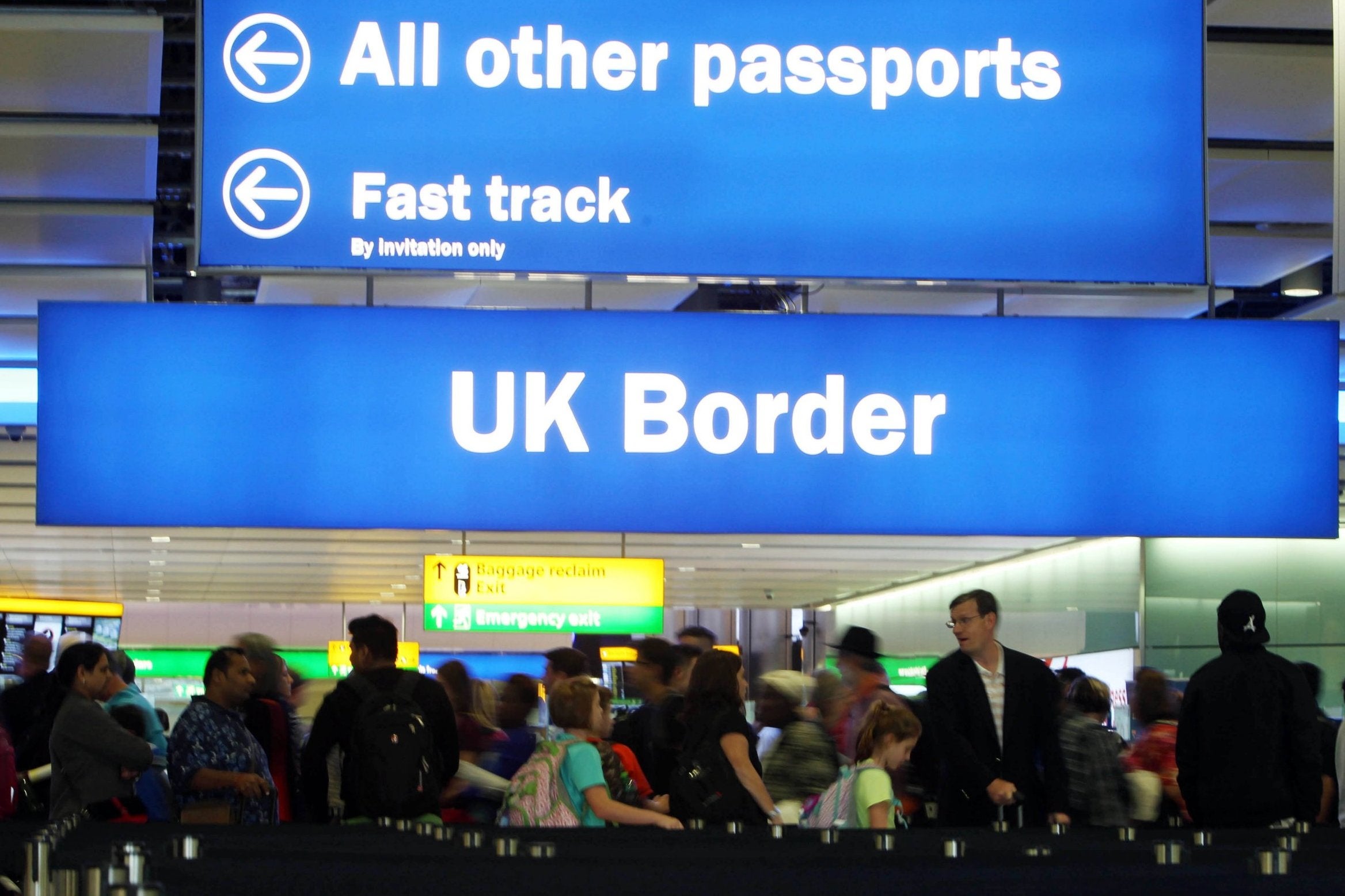The government’s new immigration plans may promise simplicity, but they will deliver chaos
If we believe – and many do – that the system is already needlessly bureaucratic, piecemeal and in need of an overhaul then what is proposed will bring complexity the likes of which the Home Office has not yet seen


Your support helps us to tell the story
From reproductive rights to climate change to Big Tech, The Independent is on the ground when the story is developing. Whether it's investigating the financials of Elon Musk's pro-Trump PAC or producing our latest documentary, 'The A Word', which shines a light on the American women fighting for reproductive rights, we know how important it is to parse out the facts from the messaging.
At such a critical moment in US history, we need reporters on the ground. Your donation allows us to keep sending journalists to speak to both sides of the story.
The Independent is trusted by Americans across the entire political spectrum. And unlike many other quality news outlets, we choose not to lock Americans out of our reporting and analysis with paywalls. We believe quality journalism should be available to everyone, paid for by those who can afford it.
Your support makes all the difference.Many, if not most, of the problems with our immigration system are found in its chaotic complexity fuelled by non-transparency. There are few simple answers and more than 2,000 pages of rules and guidance to wade through leading to costly, unnecessary and heartbreaking mistakes. Change is needed.
The government’s new white paper promises to make a new start introducing the most radical changes to our immigration system in at least 40 years. The trigger for this is Brexit, which will require some new policy for EU migration. It’s no surprise to find repeated mention that “free movement will end“ as Britain leaves the European Union.
A key message of the new system is stated by the prime minister in the white paper’s foreword: this will be “a system where it is workers’ skills that matter, not which country they come from” and in a “single system”. This refocus on simplicity can look a welcome reform. A common system for all could improve transparency and accountability removing unnecessary complexity. That would make it easier for migrants to understand and for the Home Office to use in decision-making.
But there are at least two fundamental problems with these plans that should raise serious concerns.
The first is that the underlying policy goal has not changed. Some have wrongly assumed that the commitment to a net migration target of tens of thousands had been dropped, but the prime minister notes upfront that the system “will mean we can reduce the number of people coming to this country, as we promised” and that promise is their net migration target. Theresa May later reaffirmed this at the final Prime Minister’s Questions, as she has done on many previous occasions. Repeated talk of “sustainable levels” does not mean any change to the target after all.
There are new means of slashing net migration by over 60 per cent, such as the raised minimum income threshold of £30,000 for migrants to work here. But this is simply a new phase in a continuing hostile environment for migrants under this government.
Labour has rightly argued that there is a broken link between high skills and high salaries with many degree-level careers paying under the threshold. Nor is there any list of which skills or employment matters beyond an occupational shortage list of work that is exempt from meeting the threshold. This rather undermines the government’s own case that the threshold is about bringing those “who bring most benefit” when some are deemed so important that no such restriction is necessary. It begs the question of why have any such threshold if this was really about bringing more highly skilled workers. Clearly, there is at least an inconsistency.
And with no cut in the number of enforceable rules, the opportunities for continuing Home Office mistakes and misjudgements continue. Last May, at least 1,000 highly skilled migrants wrongly faced deportation. There is nothing under the new system to protect against such mistakes.
But the second fundamental problem is that this system will be anything but universal, treating all non-UK citizens the same. Irish nationals will be treated like UK citizens and so differently from others for a start. Instead of having only two general systems for EU and non-EU citizens, the white paper introduces “different treatment for certain migrants” on the basis of security concerns and future trade agreements. Every trade deal could introduce some new difference with each country that is agreed. Rather than two systems running concurrently there could well be dozens or more. If we believe – and many do – that the system is already needlessly bureaucratic, piecemeal and in need of an overhaul then what is proposed will deliver chaos and complexity the likes of which the Home Office has not yet seen.
Not everything proposed is a step backwards. After campaigning for many years for a new “Life in the UK” test, there is a commitment to finally have this reviewed and refreshed. There are welcome signs on loosening restrictions on post-study visas for university students. Plus a reform of the Migration Advisory Committee, perhaps expanding its membership to include law and social policy expertise, is long overdue.
Yet even where the white paper gets this broadly right, there is precious little detail and no leadership. We are told that the new system will be developed “over the next 12 months”. A brave commitment for a government struggling to continue until New Year’s Day.
Until the net migration is dropped, the public will continue to lack the reassurance it needs that the government is in control. There is urgent need for a national conversation, perhaps in the form of a commission, to conduct the first review of the citizenship test and ceremony since they were introduced over a decade ago, as recommended by the House of Lords select committee on citizenship and civic participation to which I gave evidence.
Britain requires a new immigration system for a post-Brexit world. A commitment to greater simplicity and transparency would be very welcome by citizens and migrants alike – and critically important for improving low public confidence. Unfortunately, the current reform plans are more likely to make a bad situation much worse. It is more disappointing to find promises of a single-system recognising skills and contribution rather than nationality to all fall flat once the details are made clear. If the public mistrusts government now on immigration, it will only do so more under this system.
Thom Brooks is dean of Durham Law School
Join our commenting forum
Join thought-provoking conversations, follow other Independent readers and see their replies
Comments